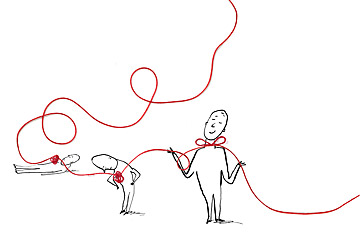
(3 of 7)
Non-performance-related anxiety can have a certain buzz at first too. "The adrenaline rush I get is extremely powerful," says Nathan (not his real name), 55, an artist who suffers from paralyzing panic attacks that strike in the night. "It's this feeling where I'm wide awake and I can see things behind me, in front of me and all around me, and it's a really cool feeling. But if it stays at that high level and I can't calm myself down, I feel like I might explode."
The metabolic jujitsu that Lewis has learned--turning anxiety back on itself--is a skill that we all possess but are not all adept at using. Professional performers, by contrast, learn to call on this trick almost at will. Watching how they work is what revealed to psychologists the dichotomy of challenge and threat stresses, and they've worked since to define the precise characteristics of the two states. "Challenge stress [occurs when] you feel like you can cope with the situation, that despite its high demands, you have the resources to handle it," says Elissa Epel, a psychologist at the University of California, San Francisco. "With threat stress, you feel less capable of handling the situation, and that can lead to a more unhealthy response."
The problem with all this is that our ancient systems have not quite kept up with the modern world and aren't terribly good at distinguishing between a jungle full of killer cats and a conference room full of nothing but other people. If we can't make the distinction, mortal terror can quickly consume us in decidedly nonmortal circumstances. And while our moments in the spotlight may not come all that often--certainly less often than for professional performers--there are also the constant, subtler worries and pressures that grind at us every day, sometimes leaving us staring at the ceiling deep into the night. Collectively this creates a kind of chronic anxiety condition, with a nonstop series of stressors leaving us struggling with one crisis even as we're worrying about the ones to come. That can lead to overload and paralysis.
"Worry is supposed to be Step 1 of problem solving, but it can be problem-generating instead," says Reid Wilson of the University of North Carolina at Chapel Hill, director of the Anxiety Disorders Treatment Center. "If it gets going too long, it actually overrides your ability to problem-solve."
Teasing apart how these stresses work is not easy, and multiple mechanisms start to emerge when researchers focus on the biological processes that drive our varied experiences. Michael Davis at Emory University was the first to map how fear and anxiety--including stage fright--play out in the brain in very different ways. When we're startled, the klaxon in the hypothalamus sounds, signaling the pituitary gland to release a hormone that in turn instructs the adrenal gland to pump out the 30 other hormones that get the body's respiratory, cardiac and other systems crackling. Principal among these chemicals is cortisol, commonly called the stress hormone because it's found in such high concentrations in the blood of very anxious or stressed people. It's cortisol that does most of the cellular damage when it hangs around in the body too long.
